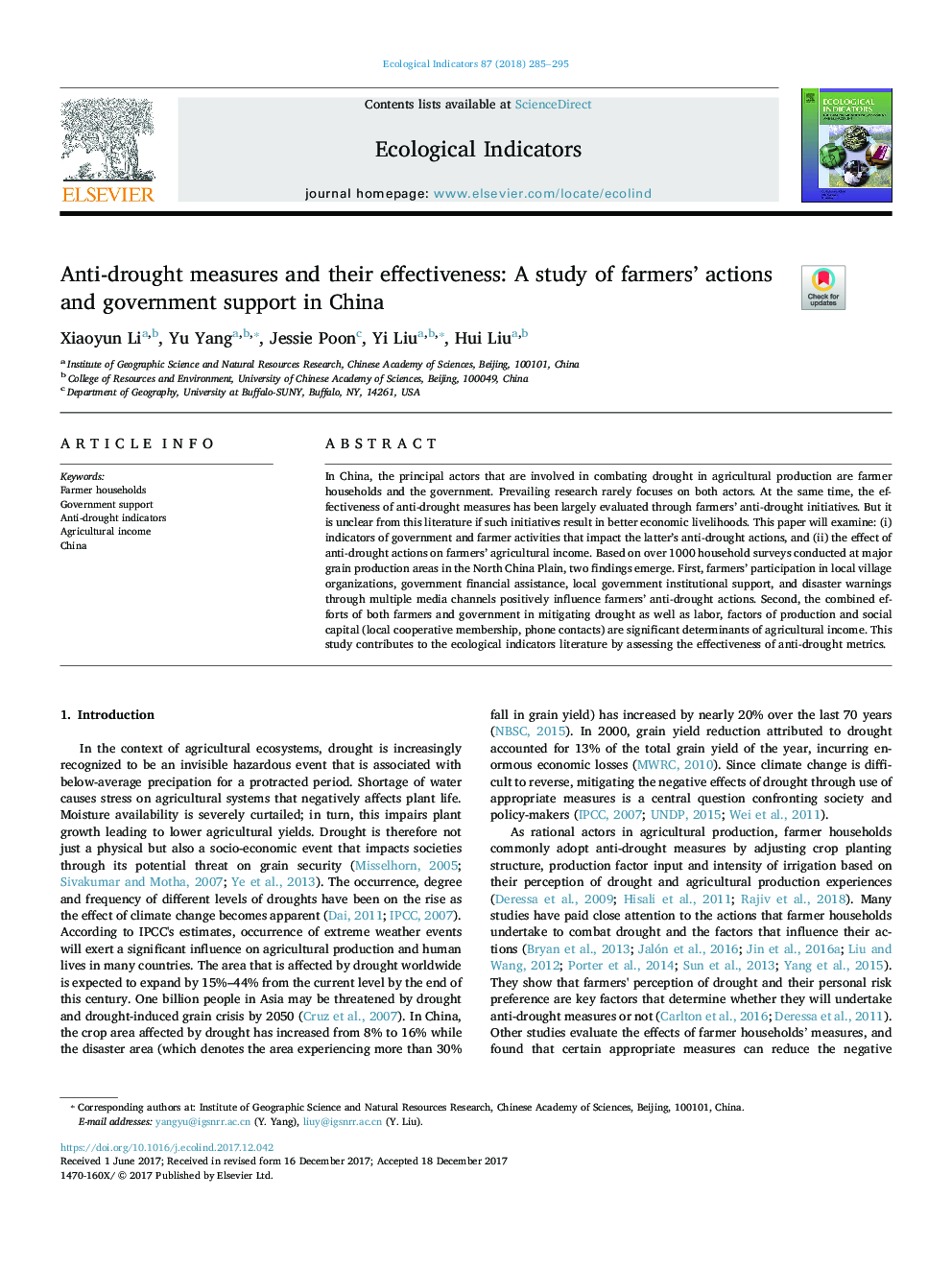| Article ID | Journal | Published Year | Pages | File Type |
|---|---|---|---|---|
| 8845596 | Ecological Indicators | 2018 | 11 Pages |
Abstract
In China, the principal actors that are involved in combating drought in agricultural production are farmer households and the government. Prevailing research rarely focuses on both actors. At the same time, the effectiveness of anti-drought measures has been largely evaluated through farmers' anti-drought initiatives. But it is unclear from this literature if such initiatives result in better economic livelihoods. This paper will examine: (i) indicators of government and farmer activities that impact the latter's anti-drought actions, and (ii) the effect of anti-drought actions on farmers' agricultural income. Based on over 1000 household surveys conducted at major grain production areas in the North China Plain, two findings emerge. First, farmers' participation in local village organizations, government financial assistance, local government institutional support, and disaster warnings through multiple media channels positively influence farmers' anti-drought actions. Second, the combined efforts of both farmers and government in mitigating drought as well as labor, factors of production and social capital (local cooperative membership, phone contacts) are significant determinants of agricultural income. This study contributes to the ecological indicators literature by assessing the effectiveness of anti-drought metrics.
Related Topics
Life Sciences
Agricultural and Biological Sciences
Ecology, Evolution, Behavior and Systematics
Authors
Xiaoyun Li, Yu Yang, Jessie Poon, Yi Liu, Hui Liu,
